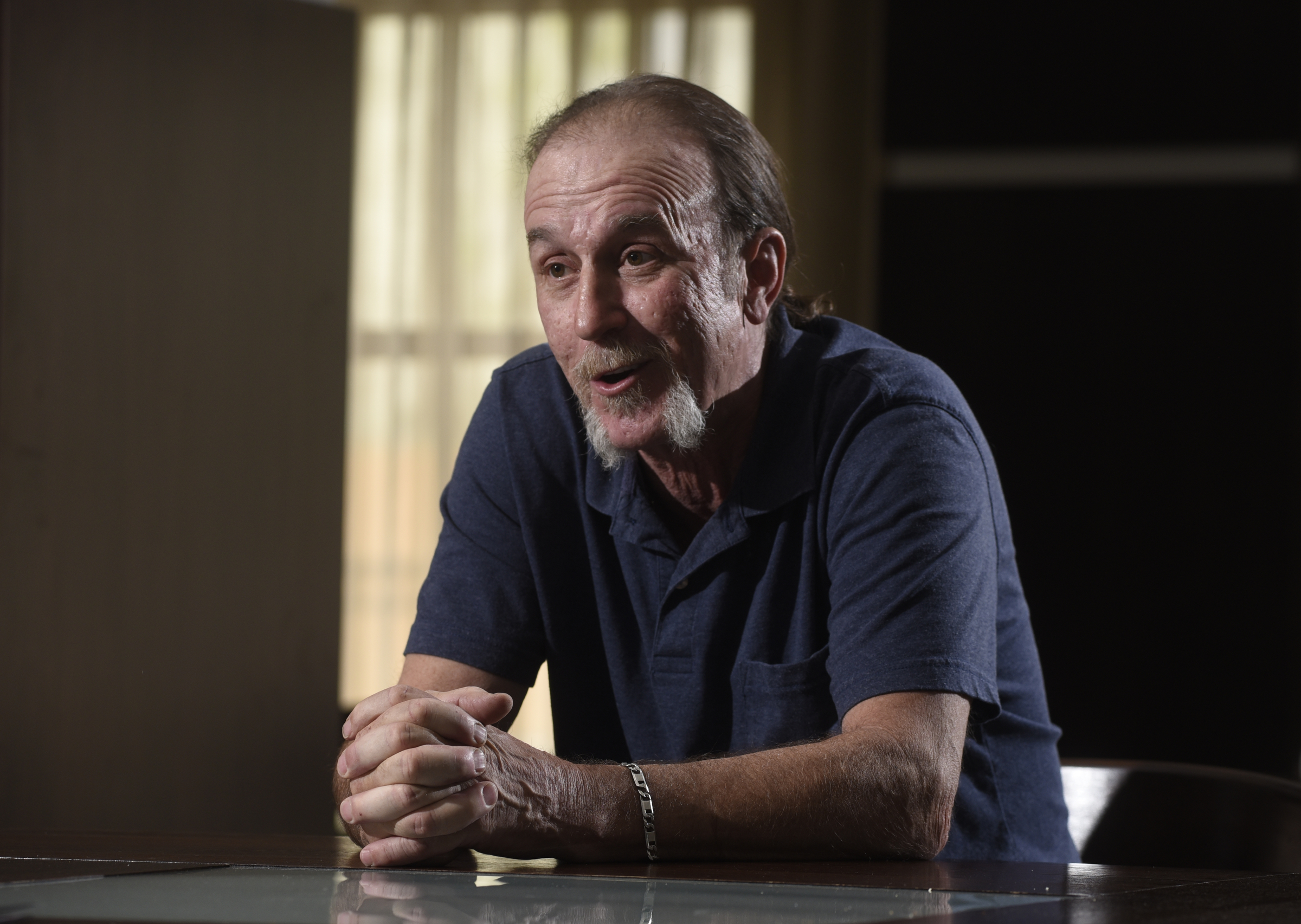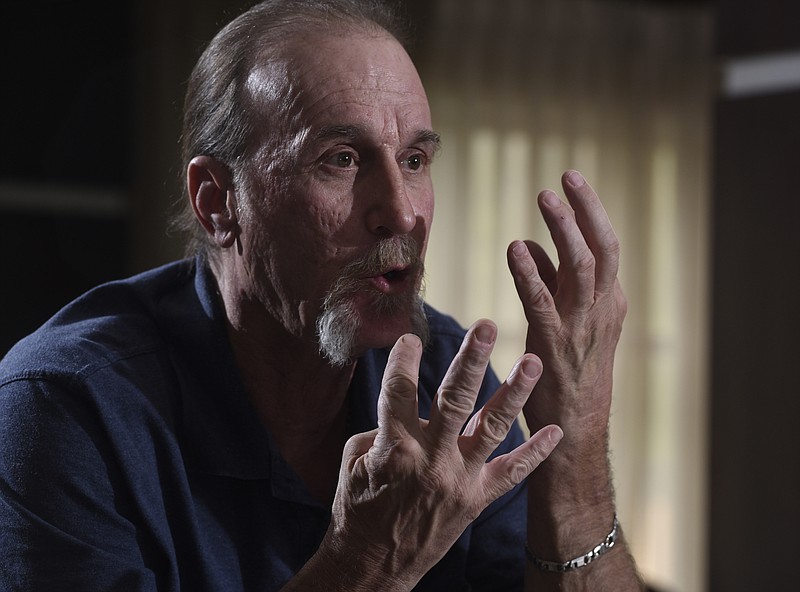 Ray Krone is photographed while he is interviewed before participating in a panel discussion on Thursday, Apr. 14, 2016, in Cleveland, Tenn. Krone, who was the 100th death row prisoner to be exonerated before his execution, was part of a panel discussion sponsored by Conservatives Concerned About the Death Penalty.
Ray Krone is photographed while he is interviewed before participating in a panel discussion on Thursday, Apr. 14, 2016, in Cleveland, Tenn. Krone, who was the 100th death row prisoner to be exonerated before his execution, was part of a panel discussion sponsored by Conservatives Concerned About the Death Penalty. Ray Krone was sentenced to die for a murder he didn't commit.
On Dec. 29, 1991, police in Phoenix found bartender Kim Ancona stabbed to death in the men's bathroom at the bar where she worked, naked except for her socks and with bite marks on her chest and neck.
Krone, an Air Force veteran and U.S. Postal Service worker with no criminal record, hung out at that bar. Someone there told police that Ancona was romantically interested in Krone, and soon investigators knocked on his door, saying he was her boyfriend.
Krone told them he barely knew the woman. They weren't dating, and he definitely didn't kill her.
But two days later, they took him to jail.
And he didn't leave for another 10 years, three months and eight days.
That's when DNA evidence proved another man committed the crime. Proved prosecutors were wrong. That two juries were wrong. That the expert who testified that Krone's mouth matched the bite marks on the woman's neck was wrong.
Krone spent three years on death row in an Arizona prison, in isolation, shackled any time he left his cell.
He told his story to a crowd of about 50 people at Cleveland State Community College on Thursday night during a panel discussion with groups opposed to the death penalty. Panelists from Conservatives Concerned About the Death Penalty and Tennesseans for Alternatives to the Death Penalty also spoke during the event.
Now 59 and living in a town about an hour east of Knoxville, Krone recounted the series of missteps, false assumptions and outright unethical behavior by prosecutors and investigators that led to his conviction.
He explained how, when he first went to jail, his initial worries were practical - who would feed his dog? What about next week's softball game? He was supposed to pitch.
"I really believed they were going to find out that I told the truth and I'd be out in a minute," he said. "And that turned into an hour, and that turned into days and then weeks."
The other panelists followed Krone's story with a series of anti-death penalty arguments tailored for a conservative crowd. It's expensive, said Marc Hyden, a national advocacy coordinator for Conservatives Concerned About the Death Penalty. And research shows it's not a deterrent to crime, he said.
In the 2013-2014 fiscal year, the average daily cost to house a Tennessee Department of Corrections offender was $74, while housing a death row offender costs $118, according to Tennesseans for Alternatives to the Death Penalty. There are now 67 people on Tennessee's death row.
"I found I could no longer support the death penalty because it clashed with my principles of pro-life policies, fiscal responsibility and limited government," Hyden told the crowd.
Krone was released on April 8, 2002 - one day after the Phoenix newspaper published an in-depth story about his situation.
He became the 100th person to be exonerated from death row since the death penalty was reinstated in 1976. That number is close to 150 now, Krone said, and three of those people were in Tennessee.
"And that's just the ones we know about," he said.
Krone has been advocating against the death penalty since his release. He never married, never had children. He's been with the same woman for nine years.
And, in some ways, he's lucky.
He spent only 10 years in prison, when some people spent decades. He went in when he was 34. Not 18, like some people.
He still gets angry, sometimes. But every time he sees something positive come from his experience - every time someone from a crowd he's spoken to stays late to shake his hand - it helps.
Contact staff writer Shelly Bradbury at 423-757-6525 or sbradbury@timesfreepress.com with tips or story ideas. Follow @ShellyBradbury.
